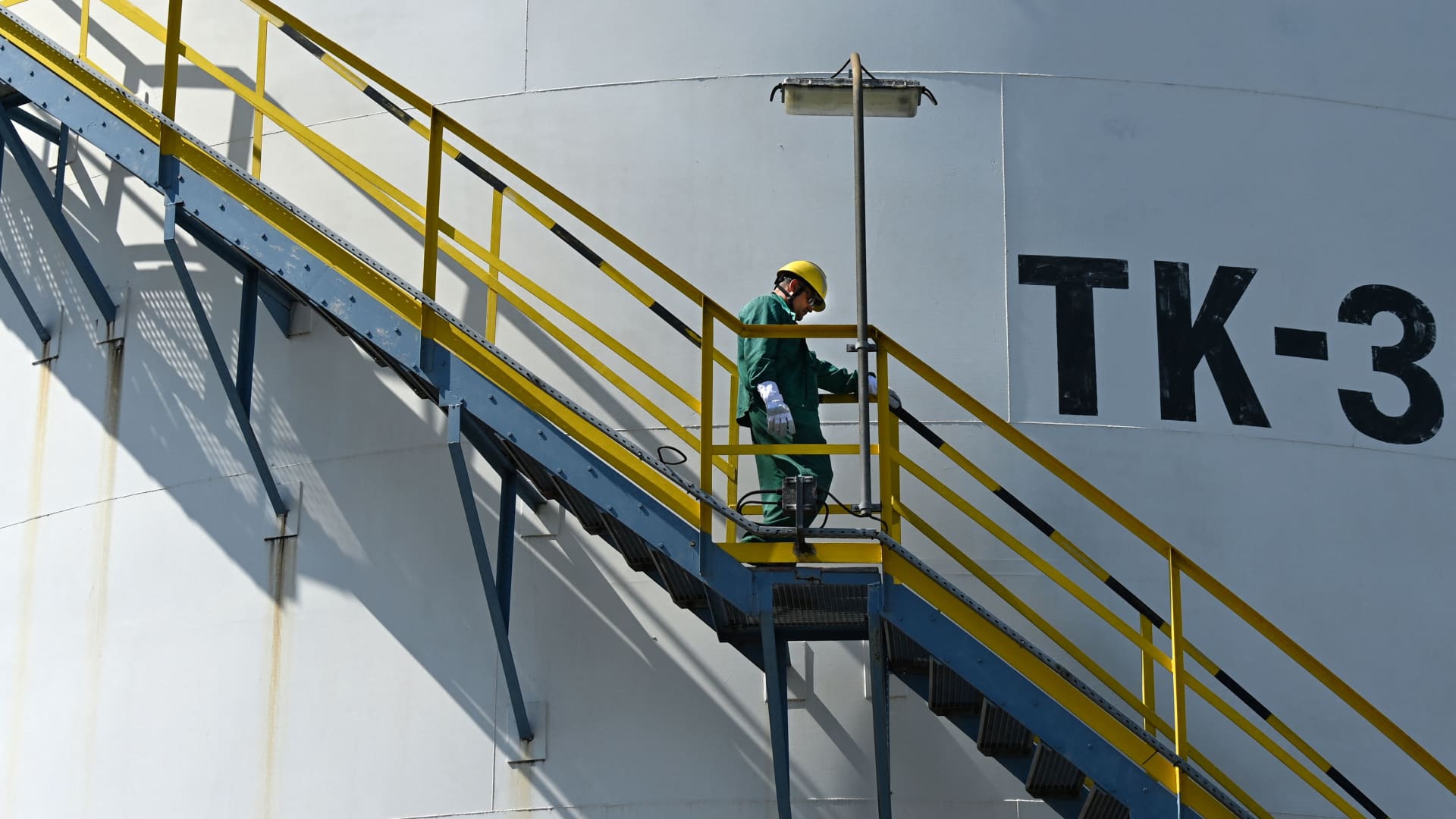EU to discuss watered-down oil embargo on Russia as Hungary holds firm

The European Union on Monday will continue to work toward an agreement to embargo Russian oil after attempts to do so on Sunday failed.
The talks are largely held up by Hungary, a major user of Russian oil and whose leader Viktor Orban has been on friendly terms with Russia’s Vladimir Putin.
Budapest over the weekend signaled support for a European Commission proposal that would apply sanctions only on Russian oil brought into the EU by tankers, which would allow landlocked energy importers Hungary, Slovakia and the Czech Republic to continue to receive their Russian oil via pipeline until alternative sources can be found. Talks were held up however by demands from Hungary for EU financing.
A spokesperson for the European Commission, the EU’s executive arm, declined to comment on the ongoing proposals.
Roughly 36% of the EU’s oil imports come from Russia, a country that plays an outsized role in global oil markets.
To be sure, Russia is the world’s third-largest oil producer, behind the U.S. and Saudi Arabia, and the world’s largest exporter of crude to global markets. It is also a major producer and exporter of natural gas.
Oil prices rose on Monday morning as market participants closely monitored the prospect of the world’s largest trading bloc agreeing to impose a ban on Russian oil imports.
International benchmark Brent crude futures traded 0.8% higher at $120.41 a barrel in London, while U.S. West Texas Intermediate futures traded 0.9% higher at $116.15.
Energy prices, already high at the start of this year, have skyrocketed since Putin launched the war against Ukraine in late February.
‘We simply have to do it’
The proposed sanctions on oil imports would be part of the EU’s sixth sanctions package on Russia since it invaded Ukraine nearly 100 days ago.
The five previous rounds of measures have included restricted access to capital markets, freezing Russia’s central bank assets, excluding Russian financial institutions from SWIFT and banning imports of Russian coal and other commodities, among others.
Talks to impose an oil embargo have been underway since the start of the month, although no tangible progress has been made since European Commission President Ursula von der Leyen said member states would ban all Russian oil from Europe.
“Today, we are addressing our dependency on Russian oil. And let’s be clear, it will not be easy because some member states are strongly dependent on Russian oil, but we simply have to do it,” von der Leyen told the European Parliament on May 4, prompting applause from lawmakers.
It had been hoped leaders could reach an agreement in time for their Monday-Tuesday summit in Brussels, Belgium, to illustrate the bloc’s unity in response to the Kremlin’s onslaught. Failure to secure any type of deal would likely be heralded as a victory for Putin.
Ukrainian officials have repeatedly insisted the EU impose a total embargo on Russian oil and gas, with energy-importing countries continuing to top up Putin’s war chest with oil and gas revenue on a daily basis.
Analysis from campaign group Transport and Environment shows Russia’s military might is being reinforced by $285 million in oil payments made every day by European countries.
Indeed, revenue from Russian oil and gas was seen to be responsible for roughly 43% of the Kremlin’s federal budget between 2011 and 2020, highlighting how fossil fuels play a central role for the Russian government.
“Given that Russia is a major producer and exporter of crude oil and refined products an embargo on sales would cause significant financial pain,” said Tamas Varga of oil broker PVM.
“On the other hand, in the absence of firm additional retaliatory measures, the EU still finances Russia in the conflict. In the first three months of the war, it acquired energy in the value of $60 billion, hardly a recipe to cause financial strain for the invader,” Varga said.
“This much the EU admits itself. What is under serious discussion is whether sanctions are the best way to punish Russia or [whether] imposing tariffs would be more effective,” he added.




